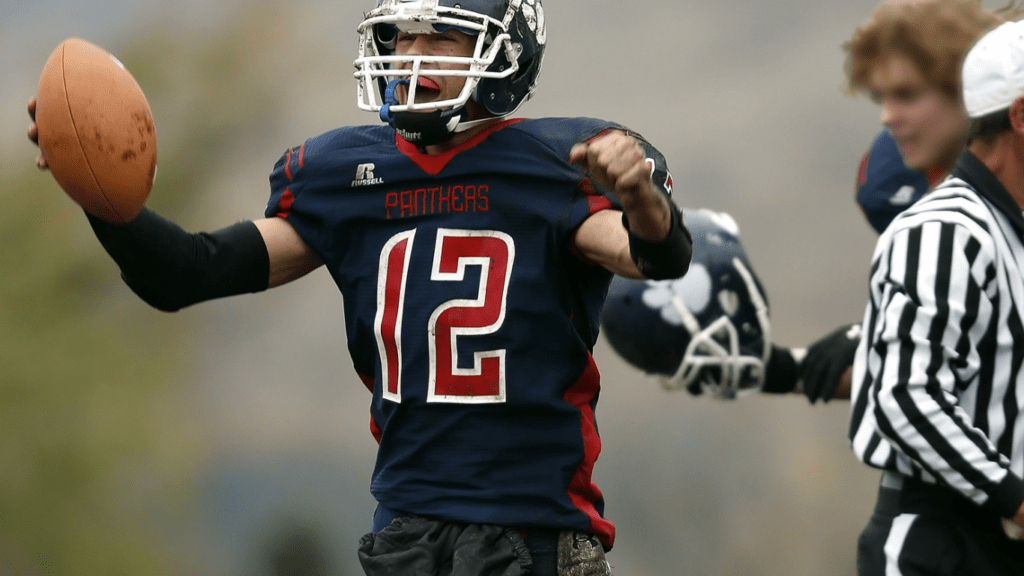Understanding Mental Barriers in Sports
Athletes often deal with mental roadblocks that can affect their performance. Recognizing these barriers aids in addressing and overcoming them effectively.
Common Psychological Challenges Athletes Face
Athletes frequently encounter fear of failure, performance anxiety, and self-doubt. Fear of failure leads to hesitance and avoidance, while performance anxiety triggers nervousness during competitions. Self-doubt causes athletes to question their abilities, which diminishes confidence. These psychological challenges not only shape an athlete’s mindset but also influence their actions and decisions during critical moments.
The Impact of Mental Barriers on Performance
- Mental barriers negatively impact an athlete’s performance in several ways.
- Reduced focus and concentration arise when anxiety overwhelms, leading to errors and inconsistency.
- Fear-centered thinking disrupts strategic planning and execution, directly affecting outcomes.
- Furthermore, the presence of doubt can lower motivation and hinder improvement.
- By addressing these barriers, athletes can enhance their focus, confidence, and overall performance.
Identifying Personal Mental Roadblocks
Understanding personal mental roadblocks is essential for athletes striving to break through performance barriers. These obstacles often manifest subtly but impact an athlete’s ability to perform at their best.
Self-Awareness and Mindset
Self-awareness plays a crucial role in identifying mental barriers. By regularly reflecting on my thoughts and feelings during training and competition, I can pinpoint negative patterns and behaviors. Maintaining a growth mindset allows me to view setbacks as learning experiences rather than failures. This shift in perspective fosters resilience and opens the door to personal and professional development.
Recognizing Mental Fatigue and Stress
Recognizing mental fatigue involves monitoring signs of stress and exhaustion that impair performance. My focus wanes and decision-making suffers when I’m overwhelmed, leading to inconsistent performance. Identifying these symptoms early enables strategic rest and recovery, preventing burnout and enhancing overall effectiveness in sports. Balancing training, rest, and mental well-being ensures sustained success and longevity in athletic pursuits.
Strategies for Overcoming Mental Barriers

Effective techniques can significantly improve an athlete’s mental fortitude. Employing targeted strategies can help break through mental barriers and unlock peak performance.
Mental Training and Mindfulness Techniques
Mental training enhances an athlete’s focus and resilience. By integrating mindfulness techniques, I can cultivate awareness and reduce stress. Deep breathing exercises, for example, calm the mind and sharpen concentration. Visualization allows me to mentally rehearse successful outcomes and build confidence. Incorporating regular meditation helps manage anxiety, ensuring I remain composed under pressure.
Setting Realistic Goals and Expectations
- Establishing achievable goals provides a clear path forward.
- Set specific, measurable objectives to maintain motivation and track progress, such as improving personal best times or mastering new skills.
- By aligning my expectations with my current abilities, I avoid disappointment and frustration.
- Focusing on incremental achievements fosters confidence and sustains momentum, helping me navigate obstacles and celebrate successes without unrealistic pressure.
Role of Coaches and Support Systems
Coaches and support systems play a vital role in breaking mental barriers faced by athletes. They provide:
- guidance
- encouragement
- resources
to help athletes overcome the psychological challenges of sports.
Building a Supportive Environment
Coaches establish a positive environment that nurtures athletes’ mental well-being. Creating a culture of trust and open communication encourages athletes to share struggles and seek help. Support networks include not only coaches but also teammates, sports psychologists, and family members. These networks help athletes deal with setbacks and foster emotional resilience.
Effective Communication and Feedback
Coaches use clear communication to boost athletes’ confidence. Constructive feedback focuses on strengths and areas for improvement instead of solely pointing out weaknesses. Regular one-on-one sessions provide opportunities for athletes to express concerns. Coaches who actively listen and adapt their feedback to match each athlete’s needs can significantly impact mental fortitude.
The Importance of Mental Health Resources
Accessing mental health resources in sports is crucial for overcoming psychological barriers. These resources enable athletes to address mental challenges proactively, enhancing overall performance and well-being.
Seeking Professional Help
Engaging with mental health professionals provides athletes with tailored strategies for managing stress and anxiety. Sports psychologists, for example, offer guidance in developing mental resilience and coping mechanisms. Constructive counseling sessions can help athletes tackle issues like performance anxiety and self-doubt, creating a foundation for mental toughness. Additionally, therapists assist in recognizing negative thought patterns, empowering athletes to replace them with positive affirmations and better focus during competitions.
Incorporating Mental Health into Training Regimens
Integrating mental health practices into daily training routines supports sustained success in sports. Athletes can include activities such as mindfulness meditation and mental imagery into their regimens to boost concentration and clarity. Regular mental exercises help in maintaining a balanced mindset, reducing the impact of stressors and distractions. Moreover, coaches who prioritize mental well-being in their training plans help foster an environment where athletes can thrive, seamlessly combining physical and mental preparation to reach peak performance levels.

 Kirstiella Wagnerson’s expertise in sports psychology has been a cornerstone of Make Athlete Action, where she has contributed valuable insights into the mental aspects of athletic performance. Her knowledge of motivation, focus, and mental resilience empowers athletes to overcome challenges and reach their goals. Kirstiella’s engaging content on mental toughness and motivation offers readers practical strategies to boost their mindset, helping them stay motivated and focused. Her dedication to the psychological well-being of athletes has made Make Athlete Action a comprehensive platform for both physical and mental fitness.
Kirstiella Wagnerson’s expertise in sports psychology has been a cornerstone of Make Athlete Action, where she has contributed valuable insights into the mental aspects of athletic performance. Her knowledge of motivation, focus, and mental resilience empowers athletes to overcome challenges and reach their goals. Kirstiella’s engaging content on mental toughness and motivation offers readers practical strategies to boost their mindset, helping them stay motivated and focused. Her dedication to the psychological well-being of athletes has made Make Athlete Action a comprehensive platform for both physical and mental fitness.